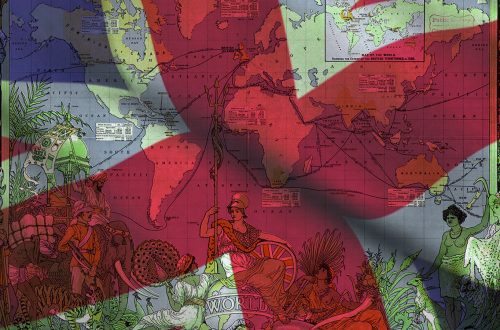In the midst of more of the usual stuff from George Monbiot, guru of the anti-globalisation movement in the UK, comes this startling admission:
The biggest question of all is the one concerning the c-word. We have little difficulty in dealing, in theory at least, with the medium-sized issues: What should be done about the World Bank? How can the anti-union laws be reversed? But we have scarcely attempted, as a movement, to tackle the big issue: what should be done about capitalism? Whenever anyone in Paris announced that capitalism in all its forms should be overthrown, everyone cheered. But is this really what we want? And, if so, with what do we hope to replace it? And could that other system be established without violent repression?
In Paris, some of us tried to tackle this question in a session called “life after capitalism”. By the end of it, I was as unconvinced by my own answers as I was by everyone else’s. While I was speaking, the words died in my mouth, as it struck me with horrible clarity that as long as incentives to cheat exist (and they always will) none of our alternatives could be applied universally without totalitarianism. The only coherent programme presented in the meeting was the one proposed by the man from the “League for the Fifth International”, who called for the destruction of the capitalist class and the establishment of a command economy. I searched the pamphlet he gave me for any recognition of the fact that something like this had been tried before and hadn’t worked out very well, but without success. (Instead I learned that, come the revolution, the members of the Fourth International will be the first against the wall, as they have “obscured the differences” between Marxism and its opponents.)
It seems to me that the questions we urgently need to ask ourselves are these: is totalitarianism the only means of eliminating capitalism? If so, and if, as almost all of us profess to do, we abhor totalitarianism, can we continue to call ourselves anti-capitalists? If there is no humane and democratic answer to the question of what a world without capitalism would look like, then should we not abandon the pursuit of unicorns, and concentrate on capturing and taming the beast whose den we already inhabit?
It’s pretty significant that a man who has adopted a leadership position in Globalise Resistance (a front for the totalitarian anti-democratic conspirators of the Socialist Workers Party) whose key slogan at anti-globo events has been “One Solution, Revolution” should now turn around and wonder whether perhaps reforming capitalism might not be another solution. Isn’t it?
I don’t want to mock Monbiot here, although I know his tendency for melodrama does rather too often ease that task. Instead we should welcome the fact that Monbiot is at least willing to admit that “By the end of it, I was as unconvinced by my own answers as I was by everyone else’s”.
Nothing wrong at all with a bit of contemplation, a touch of self-examination – there is far too little of it in the circles in which Monbiot has been moving. If some in the anti-globalisation movement follow his lead then that is surely positive.
Because, as recent months have proven, the impact of Monbiot’s anti-globalisation movement, largely through the anti-war campaign, has led to the bizarre open turn to reaction of many once considered comrades.
Reformism is the only option open to us given that the idea of an armed revolution in modern Britain is not even worthy of consideration for all manner of obvious reasons, one of which Monbiot touches upon in his fears about totalitarianism.
Yet where is the reformist alternative? Where are the movements or parties committed to a radical reforming agenda? The Labour Party historically has filled that role of course but while there have been some important steps taken by Blair’s government, the Party no longer offers itself as a vehicle for change in communities or the country as a whole.
With Labour’s transformation into a managerial party of local and national government and the death of the essentially reformist Communist Party, the field has been left free to the nihilist psuedo-left that Monbiot has been spending his time with.
Many in the Labour Party were glad to see the back of the Militant tendency and their ilk and not without reason. Serious party activists now laugh about the times they spent on ‘lost causes’ but the failure of Labour to be a presence in movements and campaigning – the rejection of activism – has come at a price.
The labour movement no longer appeals to those who want to change the world and often scoffs at the idea. But almost all of us who got involved in left politics in our youth did so out of a desire to transform the status quo. We might have had to draw some uncomfortable conclusions as time has gone by but at least we did so through the channels of politics, through experience.
The nihilist left offers no such channels, no real experience to people. It offers only snarling oppositionalism – a journey to nowhere brightened up only by the ritual cheering of slogans about bringing down capitalism.
The anti-war movement is a product of the nihilistic culture of oppositionalism and futile revolutionism that dominates the anti-globalisation scene. By rejecting not only capitalism but politics it sees no chance of positive progress anywhere in the world, automatically ruling out even the possibility that regime change could be a welcome thing.
This is how people who describe themselves as revolutionaries have ended up as cynical conservatives. Nothing good could come from intervention in Afghanistan, Iraq or even Liberia, because for them nothing good can ever come from liberal democratic capitalism. Quite how this fits in with the activists’ description of themselves as Marxists or revolutionaries still eludes me.
Instead ‘resistance’ is the buzzword and it is all that is offered by that movement whether here or in Iraq. Their’s is a revolutionism, shorn of any understanding of what a revolutionary process is or how liberal democracy and capitalism can, in certain contexts, be revolutionary.
If the likes of Monbiot start to seriously think about “capturing and taming the beast whose den we already inhabit” then they might just start to realise what that beast is and that it is in fact preferable to fascism.
They might even consider the prospects for poltical change, for movements and campaigns which have aims and objectives a little more adventurous than ‘resisting’.
Who knows, we might even, one day, be able to talk about a left again without having to think which qualifying phrase to use.


